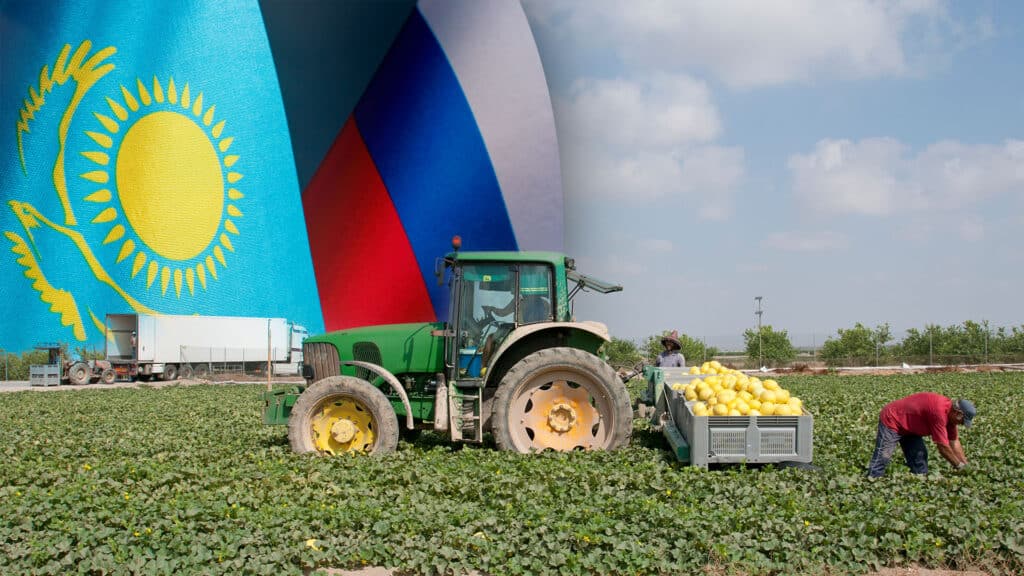Russia wants Kazakhstan to stop exporting melons

The Federal Service for Veterinary and Phytosanitary Supervision of Russia (Rosselkhoznadzor) has asked Kazakhstan to cease giving its phytosanitary certificates to melon exporters starting Oct. 7, 2024. The Russian agency has already sent an official letter to Kazakhstan’s State Inspection Committee in the agro-industrial complex of the Ministry of Agriculture.
«The resolution is taken on the grounds of multiple cases of the melon fly (myiopardalis pardalina), a quarantine object, discovered in the melons supplied from Kazakhstan. We also aim to preserve the phytosanitary welfare of Russia,» Rosselkhoznadzor said in a statement.
Phytosanitary certificates are required for products crossing the border. Therefore, by demanding that Kazakhstan stop issuing such certificates for melons, Russia is about to effectively cease importing. The agency explained that the presence of the melon fly puts in danger other gourds like watermelons, cucumbers and pumpkins that are growing in Russia.
«The potential economic damage from the fly’s introduction and spread is estimated to exceed $2.6 million,» the agency said.
The statement indicates that imports of quarantine-regulated products from Kazakhstan increased significantly in 2024. The majority of these products consist of fruits and vegetables, with 17% being fresh melons certified by the State Inspection Committee of Kazakhstan’s Ministry of Agriculture’s agro-industrial complex.
In the middle of August, Kazakhstan’s Ministry of Agriculture received a similar request from Rosselkhoznadzor to stop certifying grain and grain products, sunflower seeds, tomatoes and pepper due to the presence of quarantine objects. The Russian agency has also ceased certifying the abovementioned products since Aug. 23, hence banning Kazakhstani product exports to Russia.
Kazakhstan’s vice minister of agriculture, Ermek Kenzhehanuly, said that Kazakhstani laboratories hadn’t revealed any phytosanitary breaches in the exported goods. Following this, the Ministry of Agriculture of Kazakhstan sent a formal request to Rosselkhoznadzor, asking for evidence to support the claims of dangerous diseases in Kazakhstani crops.
Experts view these actions as retaliatory measures following Kazakhstan’s initial ban on grain imports from third-party countries until the end of the year. The resolution aims to protect the market from cheap Russian wheat against the backdrop of domestic heavy crops. The Kazakh Grain Union didn’t support the decision, warning of potential retaliatory measures by Russia against Kazakhstani farmers.
Thus, according to the union, Kazakhstani exporters already struggle with exporting grain to Europe through Russia due to restrictions implied by Rosselkhoznadzor. Companies complained of severe losses, as they couldn’t load grain on ships and had to pay demurrage charges at Russian railroad stations. However, Kazakhstan’s Ministry of Agriculture denies any connection between these events.

